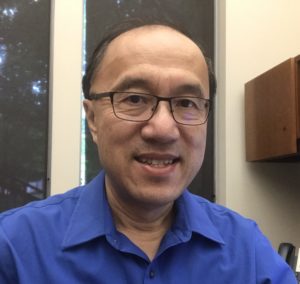Friday, October 22, 2021
2:00pm-3:00pm
*ONLINE*
October 22, 2021
Interested members of the U of T community who would like to attend the online seminars can email Kendra Hunter at hunter@mie.utoronto.ca for the Zoom link.
Professor Fan Yuan – Duke University (Department of Biomedical Engineering)

Overcoming and Establishing Transport Barriers to Improve Delivery of Molecular Cargo
Abstract
Effective delivery of molecular cargo to target sites in the body is crucial for treatment and prevention of diseases. Our lab has investigated cargo delivery in cells and tissues, using nanoparticles, viral vectors, and physical methods. Recently, our research has been focused on electric field mediated delivery (or electrotransfer) of macromolecular cargo, such as DNA, mRNA, and ribonucleoprotein. Comparing to viral delivery systems, the electrotransfer method is safe, and unlimited by the size and the number of cargo to be delivered simultaneously into a cell. To improve the efficiency of electrotransfer, we have systematically investigated mechanisms of cargo transport in cells and tissues. Results from the investigation have demonstrated that cargo transport in the extracellular region relies mainly on electrophoresis, while cellular uptake and intracellular trafficking of the cargo are mediated by endocytic and autophagic pathways activated by the pulsed electrical field. Additionally, we have investigated mechanisms of the nuclear entry of electrotransferred plasmid DNA. Findings from these studies have been applied to the development of new strategies for improving gene delivery, genome editing, and DNA vaccination.
Bio
Fan Yuan is a Professor of Biomedical Engineering and Ophthalmology at Duke University, Durham, North Carolina. He studied at Peking University between 1979 and 1985, where he received B.S. and M.S. degrees in mechanics. In 1986, he went to the City University of New York to study bioengineering, and received his Ph.D. degree in 1990. After graduation, he did a post-doctoral training in biomedical engineering at Carnegie Mellon University, and moved to Harvard Medical School in 1991, where he worked initially as an Instructor and later was promoted to Assistant Professor of Radiation Oncology. In 1996, he was recruited by Duke University as an Assistant Professor of Biomedical Engineering. At Duke, he had served as the Director of Undergraduate Studies, and is currently the Director of Graduate Studies for Master Programs. His research interests include biomechanics, transport analysis in cell and tissues, and molecular cargo delivery in eyes and solid tumors. His contributions to science have been recognized by a few awards and honors, including CAREER Award from National Science Foundation, IPM Innovative Instrumentation Award from Microcirculatory Society, Breast Cancer Career Development Award and Capers and Mario McDonald Award for Excellence in Teaching and Research at Duke University. He is fellows of the American Institute for Medical and Biological Engineering and the Biomedical Engineering Society. He has published more than 100 research papers, and co-authored a textbook on transport analysis in biological systems.
MIE’s Distinguished Seminar Series features top international researchers and leading experts across major areas of Mechanical Engineering and Industrial Engineering. The speakers present about their latest research and offer their perspectives on the current state of their field. The seminars are part of the program requirements for MIE Master of Applied Science and PhD students. The Distinguished Seminar Series is coordinated for 2021-2022 by Assistant Professor Merve Bodur.
View all upcoming MIE Distinguished Seminars.